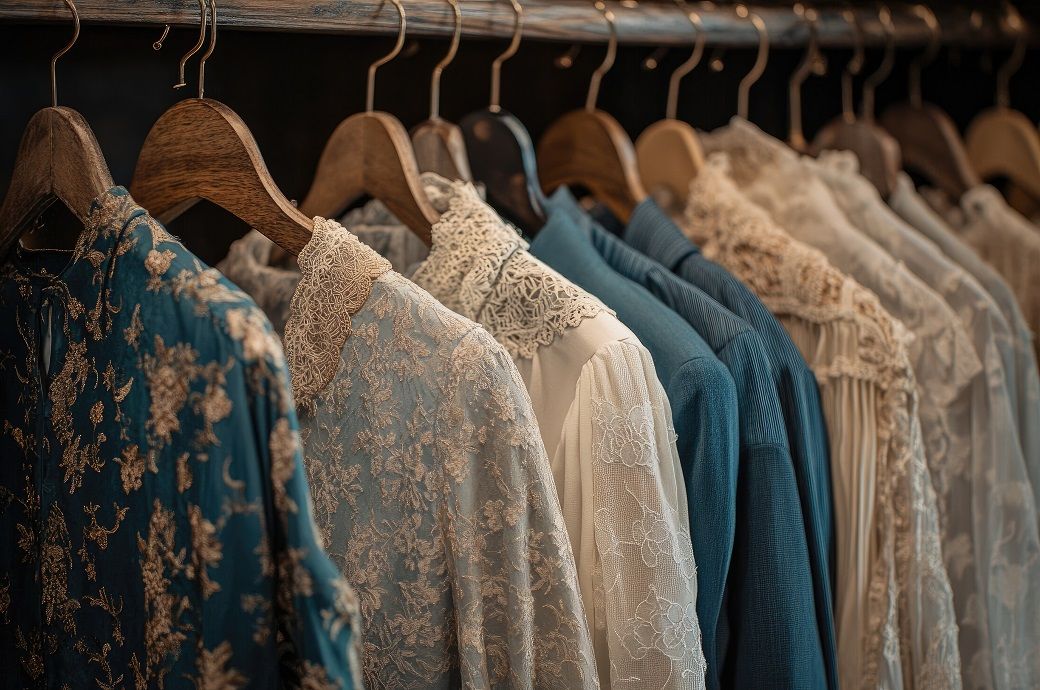Fashion
Universal Standard’s CEO talks inclusivity, legacy and brand-building

In 2015, Polina Veksler and Alexandra Waldman launched the inclusively sized women’s fashion label Universal Standard with an eight-piece collection offering sizes ranging from 10 to 28.
“When Alex and I first founded the brand, we had no fashion industry experience,” Veksler, the company’s CEO, said in an interview. “Alex was learning the ins and outs of design, tracing sketches of silhouettes on paper, and I was taking courses on how to operate Shopify, build a website, and manage inventory.”
Now, the privately-owned DTC company produces clothing in sizes 00 to 40, and in the past nine years, it has sold more than 2.5 million items of clothing and grossed nearly $200 million in sales, according to a spokesperson.
The company’s collections have grown over the years, and now include basics, swimwear and underwear, plus a 25-piece collection of office-ready attire launching August 21.
The new work-ready line will be more expansive than the company’s previous office attire collection, Veksler said, and will include ponte pants, jackets, button-up shirts and blouses. Prices for the collection range from $76 to $298, according to a company spokesperson.
“It’s more expansive than our previous workwear collections to accommodate different style preferences and professional journeys,” Veksler said. “We’ve always been in touch with our community, and what we kept hearing is that they do not have any premium workwear options. Everything on the market was either juvenile or uncomfortable or frumpy or low-quality. And workwear is a timeless essential staple that is necessary in every wardrobe.”
Within the next year, Veksler said the company plans to introduce collaboration collections with brands “that are like-minded in our mission to democratize shopping,” and will also be announcing wholesale plans with “some of the nation’s most iconic mass retailers.”
Waldman died last year after stepping away from the company to focus on cancer treatment. Veksler said she sees the brand as Waldman’s legacy.
“Overall, we will continue to push for a cultural shift that does not distinguish by labels like ‘plus-size’ or ‘straight-size,’ because by offering a limited number of select styles in a specialty category, brands still ‘other’ certain shoppers,” Veksler said. “What we want is a new archetype that allows all sizes to shop in the same way.”
This interview has been edited for brevity and clarity.
FASHION DIVE: How do you think the fashion industry has changed since you launched?
POLINA VEKSLER: When we launched, we wanted to change the way fashion has looked at women, and also the way women have looked back at fashion. For the most part, the fashion industry has been pretty exclusive, and we wanted to create a brand where there was equal access for everyone, and make size irrelevant in the shopping experience. And when we started there [weren’t] a lot of brands doing what we were doing. I think we pioneered the size inclusivity movement. And I think the industry did move forward on inclusivity, body positivity, representation, diversity. But as in everything with fashion, there are pendulum swings, and unfortunately, I think we’re currently swinging in the wrong direction.
What’s the wrong direction for you?
There have been a lot more brands shying away from that size inclusivity conversation, and there is not as much availability and as much conversation happening now as there was four to five years ago.
What changed?
It’s difficult. Being an inclusive brand, and carrying all the sizes, is costly. It’s difficult on the inventory side, it’s difficult on the fit side. And brands are dipping one toe in or two toes in, and sometimes it’s not working.

Two new workwear looks from Universal Standard.
Courtesy of Universal Standard
How has your company changed since you launched?
I’ll be completely transparent with you, that in terms of the way that we approach our business, we have approached it almost in the exact same way as when we started. That’s been one of our main differentiators and our key to success. We wanted to build a business where we really listened to our customers, and as a result, customers have really trusted us, and we have been able to acquire a very loyal customer base. When we acquire a customer, we’re able to turn them into a customer for life because they’re getting something they haven’t experienced in the past.
What it is you think you’ve given them that they haven’t experienced before?
The majority of what has been on offer for customers who happen to wear double-digit sizing has been fast fashion, disposable fashion. What we’ve been able to do is, first and foremost, focus on fit. We fit every single style on every single size, and as a result, we have exceptionally low return rates for a direct-to-consumer company. Also, because the majority of direct-to-consumer [brands] in double-digit sizing [are] fast fashion, when [customers] experience the quality of the fabric, it’s very different from fast fashion. Also, we have a program called Fit Liberty. If a customer happens to go up in size or go down in size, they’re able to exchange their current clothing for free for that same style in their new size.
Your clothing is priced higher than some customers can afford. Do you ever think about doing something less expensive?
Maybe sometime in the future. We do want to provide access to everyone. So it is something that is on our radar. But we also do annual sales, and we focus on the quality of the clothing.
You lost your founding partner last year. How has that affected how you see the company moving forward?
Unfortunately, Alex was sick for some time. So it wasn’t something that was sudden, and we had the opportunity to prepare, as hard as it is to prepare for something like this. The way it has changed us is, we want to make sure that the company leaves a legacy for Alex and hopefully, in five to 10 years, Universal Standard is thought of as one of the most important brands and fashion for changing the way that this industry operates. That’s what the entire team and myself are working towards, is to double down on our mission and make sure that we are successful. The brand is Alex’s legacy.









